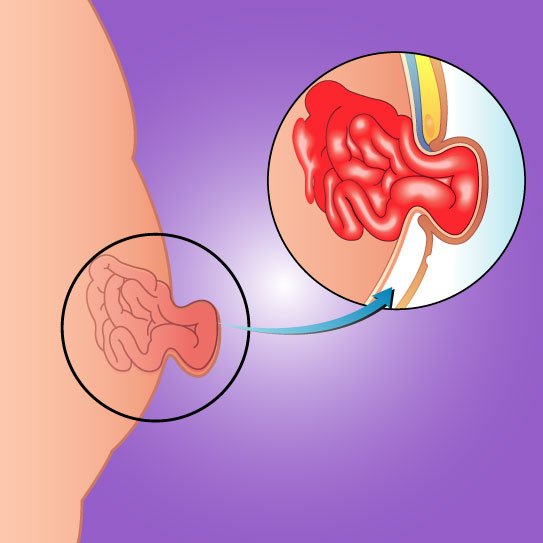
Select City
Pristyn Care is a specialized healthcare center in Bangladesh providing the best and the most reliable surgical treatments. At our treatment centres, we place a high priority on improving patient comfort and providing a safe, clean, and sanitised environment. To deliver the best services and uphold high standards of healthcare, we use cutting-edge technology and USFDA-approved surgical and diagnostic tools.
For the best hernia repairs, our doctors are skilled in both the time-tested open technique and the cutting-edge laparoscopic technique. We also make sure to use premium hernia mesh to reduce the likelihood of mesh-related complications. We provide our patients with individualised care, and we stand by them as they undergo treatment.
Here are some more reasons why you should choose Pristyn Care in Bangladesh:
So, if you have symptoms of a suspected umbilical hernia, don’t delay in getting the treatment. Contact Pristyn Care and book your appointment today.

![function at() { [native code] }](https://www.pristyncare.com/cms/wp-content/uploads/2021/12/UHernia-1.jpg)
Diagnosis and Treatment for Umbilical Hernia
The doctor will conduct a physical examination to look at the bulge and determine whether it is a hernia. It will be advised to perform the following tests for a precise diagnosis:
The tests mentioned above are all significant. The outcomes of these tests will aid in determining the best course of action for treating a hernia.
There are two types of procedures used to repair umbilical hernia:
In comparison to open hernia repair surgery, laparoscopic hernia repair surgery has a number of benefits such as shorter hospital stay, less pain, faster recovery etc. Still, it might not be good for all patients, some patients might need open surgery to repair hernia.
A person with an umbilical hernia should follow the directions recommended by their doctor when it comes to treating it. During the repair of an umbilical hernia, you may receive instructions from your surgeon.
After an umbilical hernia surgery, it’s important to follow proper recovery tips to ensure a smooth and successful recovery. Here are some tips to help you recover:
Overall, it’s important to take it slow and listen to your body as you recover from umbilical hernia surgery. With proper care and attention, you can expect to make a full recovery and return to your normal activities in a timely manner.
Delivering Seamless Surgical Experience in Bangladesh
Pristyn Care provides consultation for 50+ diseases and treatments such as Piles, Hernia, Kidney Stones, Cataract, Gynecomastia, Circumcision etc. across 3+ major cities in Bangladesh.
Our surgeons spend a lot of time with you to diagnose your condition. You are assisted in all pre-surgery medical diagnostics. We offer advanced laser and laparoscopic surgical treatment. Our procedures are USFDA approved.
A dedicated Care Coordinator assists you throughout the surgery journey from insurance paperwork, to free commute from home to hospital & back and admission-discharge process at the hospital.
We offer follow-up consultations and instructions including dietary tips as well as exercises to every patient to ensure they have a smooth recovery to their daily routines.
While any surgery carries some level of risk and should be taken seriously, umbilical hernia repair is generally considered a minor surgical procedure. The procedure is usually performed on an outpatient basis, meaning that patients can typically go home the same day.
The average cost of a umbilical hernia surgery in Bangladesh is relatively more affordable as compared to other countries across the globe with prices ranging from ৳ 55,000 to ৳ 70,000. It is to be kept in mind, however, that the exact cost of a umbilical hernia surgery will depend on multiple factors like method of surgery, severity of symptoms, city you undergo surgery and hospital of choice.
In general, it will take around 2 weeks to recover after the umbilical hernia repair surgery.
No, hernia repair surgery (herniorrhaphy) is the only way to treat hernia. It is not possible to fix an umbilical hernia without surgery
In most cases, patients are able to go home the same day after hernia mesh surgery. Depending on your level of recovery, it may take four to six weeks. Laparoscopic surgery may be able to speed up the recovery process for elderly patients. Right after surgery, patients should perform only necessary functions, but they can resume light activities within a few weeks.
Yes, Pristyn Care accepts almost all the insurances to provide the treatment for umbilical hernia in Bangladesh.
If left untreated, an umbilical hernia can lead to several complications, including:
Overall, it’s important to seek prompt medical attention if you suspect that you have an umbilical hernia. In most cases, surgery is necessary to repair the hernia and prevent serious complications.
Unfortunately, there is no surefire way to prevent an umbilical hernia from developing. However, there are a few things you can do to reduce your risk:
While these steps may not guarantee that you won’t develop an umbilical hernia, they can help reduce your risk and promote good overall health.
If you are scheduled for laparoscopic umbilical hernia repair surgery, it’s important to ask your surgeon questions to ensure you understand the procedure and what to expect. Here are some questions you may want to consider asking:
By asking these questions and any others you may have, you can ensure that you have a clear understanding of the procedure and what to expect, helping you feel more confident and prepared for your surgery.